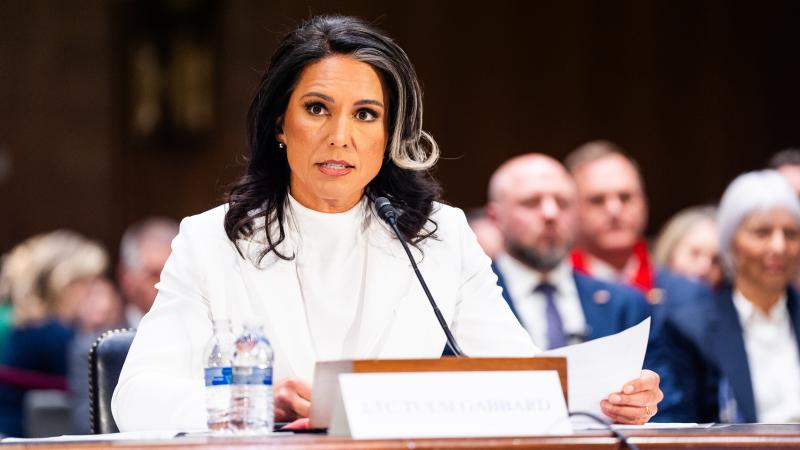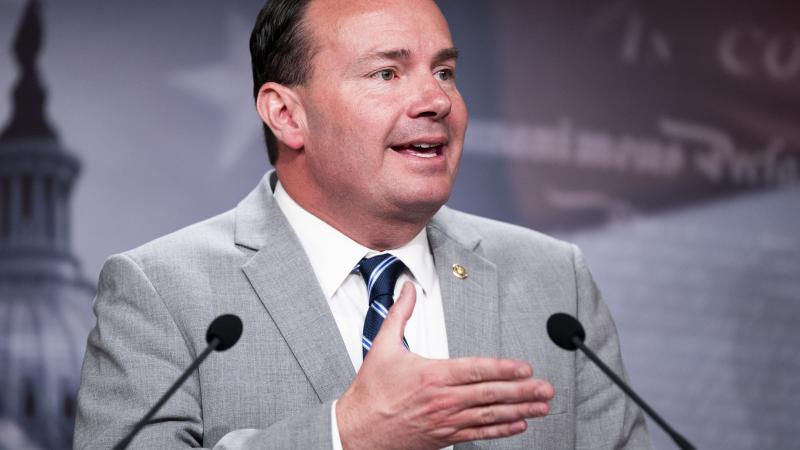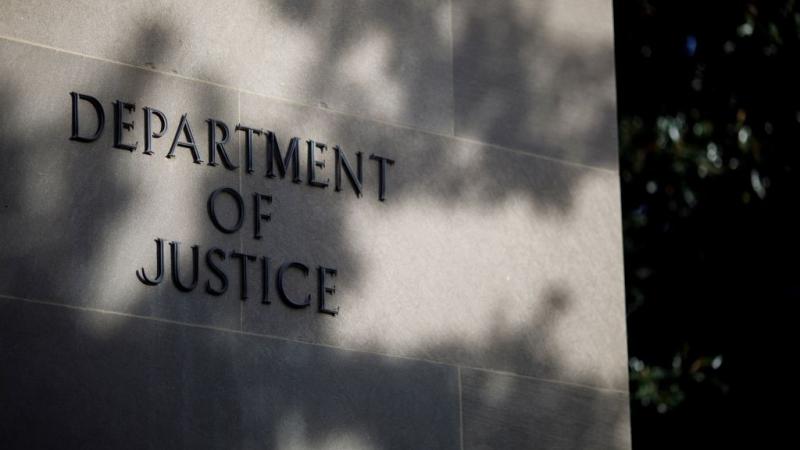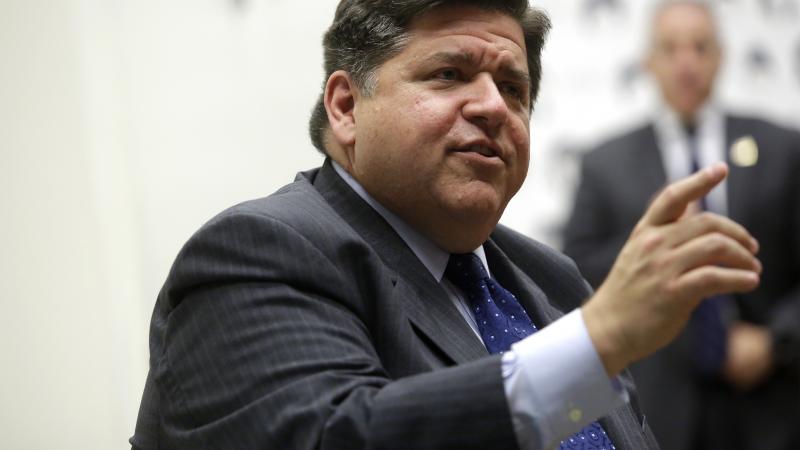Intel watchdog ignored Russiagate whistleblower’s reports of abuses by spy agencies, new memo shows
The treatment of the reports contrasts with the watchdog’s handling of the whistleblower complaint that spurred the 2019 impeachment of President Trump.
The same intelligence community watchdog who aggressively pursued a dubious complaint that triggered the Ukraine impeachment inquiry against President Donald Trump repeatedly ignored a whistleblower’s evidence of the intelligence community's abuse of authority in the Russiagate scandal for years, according to newly declassified memos, obtained by Just the News.
In fact, the Intelligence Community Inspector General’s office even told the Russiagate whistleblower it believed there may be merit to his claims but couldn’t figure out how to alert federal prosecutors to his evidence of possible criminality, the memos show.
“At that 2022 meeting, the IC IG staff stated to me –for the first time - that the IC IG lacked a mechanism or authority to convey potentially relevant whistleblower information, regarding potential criminal activity, to the Department of Justice (DOJ) Special Counsel,” reads a memo summarizing the whistleblower’s years-long quest to bring the alleged wrongdoing to attention.
The whistleblower’s efforts finally got attention this summer when DNI Tulsi Gabbard personally reviewed his concerns and made a criminal referral to the Justice Department.
Evidence that Obama-era agencies abused their authority to nail Trump but ignored it
Previously, the whistleblower's concerns fell on deaf ears, despite the fact that he held one of the most senior positions on the National Intelligence Council, as a deputy national cybersecurity officer, and had direct knowledge of wrongdoing that occurred during the Obama administration’s flawed intelligence community assessment (ICA). That assessment — that claimed Russia tried to help Donald Trump win the 2016 election — has now been widely challenged if not outright debunked.
The Russiagate whistleblower whose name remains redacted from the evidence that Gabbard recently made public, provided evidence that the Obama-era US spy agencies wrongly used the discredited Steele Dossier to justify its conclusions and violated multiple rules for conducting intelligence assessments.
His journey stands in stark contrast to the way the same ICIG handled a whistleblower complaint in 2019 alleging that Donald Trump tried to coerce Ukraine’s president to investigate the Biden family’s activities in that country by tying it to aid. There, the watchdog pursued the allegations aggressively and deemed second-hand reporting credible even when it found that the whistleblower in that matter had indicators of “arguable political bias” against the president.
Former House Intelligence Committee Chairman Devin Nunes, who saw the Ukraine whistleblower complaint, which is still sealed, has long called it a “fake whistleblower complaint.”
The former chairman recently called on all the documents related to the impeachment whistleblower’s complaint to be made public to help find out how and why the two cases were treated differently.
“There should be a lot of data from the inspector general, that should all be declassified,” Nunes recently told the Just the News, No Noise TV show. Referring to the purported Ukraine whistle-blower, Nunes said “All the meetings of this whistle-blower […] because this guy wasn’t a whistleblower, he made up a phony story.”
“You had the corrupted inspector general that was involved in all of the shenanigans,” Nunes added.
IG fast-tracked basis for impeachment of Trump
Indeed, then-Inspector General Michael Atkinson deemed the Ukraine whistleblower’s complaint (that helped trigger the failed impeachment proceedings against Trump) “credible” and of “urgent concern,” eventually penning a report concluding that Trump could be part of a national security risk because of his phone call to Ukrainian President Volodymyr Zelensky.
However, the Russiagate whistleblower received completely different treatment from the inspector general’s office, the memos show. Despite alleging that he possessed information he believed was relevant to the Special Counsel John Durham’s ongoing criminal investigations, he said that he was rebuffed by the watchdog.
The newly declassified memo shows that the Russiagate whistleblower raised several substantive concerns about the production of the 2017 ICA at the center of the Trump-Russia investigation and efforts to influence the intelligence community’s conclusions about Russian interference in the 2016 elections.
“Between 2016 and 2022, through first-hand involvement, I became aware of multiple events that may have represented the use or attempted use of national security authorities to influence domestic politics,” the whistleblower wrote in a memo summarizing his concerns.
You can read the declassified memo below:
Whistleblower felt pressured to follow anti-Trump narrative
The whistleblower said that he felt pressure to “misrepresent” his analysis in order to support the 2017 ICA’s key finding, and was not consulted about the creation of the 2017 ICA despite his central role in the prior 2016 assessment. He also developed concerns that the Intelligence Community was failing to assess foreign influence from other countries, including U.S. allies.
“I objected to overall framing of Russian activities as 'efforts to influence,' as opposed to discredit the outcome of the 2016 election, and also judged that the 2017 ICA’s treatment of overt media activities was omitting important context,” the Russiagate whistleblower explained, according to the memos.
However, “[redacted] actively pressured me to change my judgements [sic]” and said that the change was necessary to secure support for the intelligence assessment from other spy agencies, namely the Defense Intelligence Agency.
The whistleblower noted that the ICA relied on Russian state media reporting that denigrated then-candidate Hillary Clinton as proof of Russia's alleged "pro-Trump" stance, but that ICA did not include comparable public reporting that denigrated then-candidate Trump from media in other countries, including those that are close allies of the United States.
“I did not contest the fact of abundant Russian media denigration of then-candidate Clinton, but I was also aware of the denigration of multiple US presidential candidates, to include but not limited to then-candidate Trump, by media outlets in many other nations, including NATO allies,” the whistleblower wrote.
Expressed concerns about use of phony Steele Dossier to undermine Trump
The whistleblower also raised concerns that the Steele Dossier, which he believed that the intelligence community viewed as not credible, was ultimately included in the 2017 ICA. The whistleblower became alarmed when he received an email from a program manager directing a search for references to the dossier in response to a Freedom of Information Act (FOIA) request.
That email cited a former official who had stated: “the dossier was a factor in the 2017 ICA on election interference in which an assessment of the document was added as an annex,” which caught the whistleblower’s attention.
“The assertion that ‘Steele Dossier’ material had been used in the 2017 ICA, was in contradiction to what had previously implied, and at no time during the prior three years had any of the NIC staff members suggested to me that the IC viewed the ‘Steele Dossier’ material as credible,” the whistleblower wrote.
The whistleblower’s suspicions would turn out to be true. A recently declassified House Intelligence Committee report concluded that the Obama-era intelligence assessment on Russian election meddling used the discredited Steele Dossier to underpin its conclusion that Vladimir Putin aspired to help Donald Trump win the 2016 election and did not adhere to analytical standards in its assessment of foreign influence, Just the News reported in July. CIA Director John Brennan dissembled in congressional testimony about his insistence on the inclusion of the Steele Dossier in the ICA. Brennan and other collaborators on the ICA have steadfastly denied wrongdoing and suggested any criminal probe now would be politically motivated.
Watchdog claimed they had "no procedure" to notify Justice Department about Russiagate
After nearly a year of attempts to meet with the Intelligence Community watchdog, the whistleblower relayed his concerns in a July 2020 in-person meeting with ICIG staff. However, despite taking extensive notes of the whistleblower’s complaints, the staff told the whistleblower they did not have a way to relay the concerns to the Justice Department or Congress.
“IC IG staff acknowledged the possibility that I had witnessed malfeasance and events of possible relevance to ongoing criminal investigations being conducted by Special Counsel Durham, but the IC IG staff stated no procedure existed to pass information to DOJ investigators, save my taking action in personal capacity,” the whistleblower wrote.
The Intelligence Community Inspector General did not respond to a request for comment sent to the Office of the Director of National Intelligence.
The way the intelligence watchdog treated the Russiagate whistleblower’s complaint stands in stark contrast to the rapid and public way the Ukraine whistleblower’s concerns were handled by the office.
The inspector general, only about one month after President Trump’s phone call with Zelensky, delivered a full assessment of the alleged Ukraine whistleblower’s complaint to the Director of National Intelligence, concluding that the concerns “appeared credible.”
Allegations against Trump taken seriously, against others, not so much
Inspector General Atkins’ 7-page letter to the Director of National Intelligence presented the findings of his office’s short investigation into the complaint.
“In the ICIG’s judgment, alleged conduct by a senior US public official to seek foreign assistance to interfere in or influence a Federal election… would also potentially expose such a US public official (or others acting in concert with the US public official) to serious national security and counterintelligence risks with respect to foreign intelligence services aware of such alleged conduct,” Atkinson wrote.
He concluded this despite his office also finding “some indicia of an arguable political bias on the part of the Complainant in favor of a rival political candidate,” the letter shows.
Unlike how the ICIG treated the Russiagate whistleblower’s complaint, the office almost immediately conducted an investigation of the whistleblower’s allegations and forwarded them to the DNI. The whistleblower also sent his complaints to the Democrat-controlled House Intelligence Committee and where they would form part of the House’s impeachment inquiry into then-President Trump.















